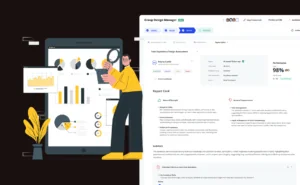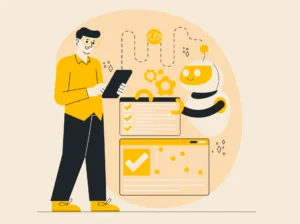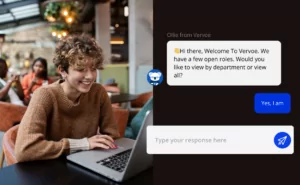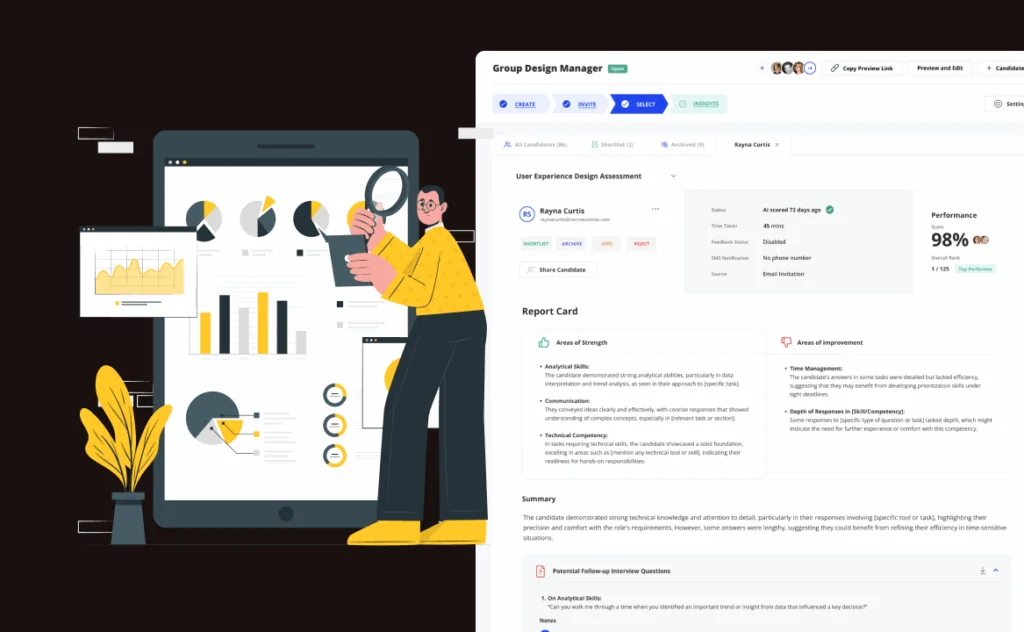The case study interview has long been the preferred method for recruiters hoping to glean insight into a candidate’s real talent. Case interviews have traditionally been used by top consulting firms like Bain and McKinsey, but more and more companies are beginning to use this method in their hiring practices. By asking conceptual, abstract questions – how many tennis balls can you fit in a Boeing 757, for example – the interviewer seeks to understand a candidate’s approach to problem solving and creativity.
However, there are a few problems with using a case study to assess a candidate’s potential, which will be discussed in a little bit. Skills testing or group interviews, on the other hand, offer a more complete picture of a candidate’s ability. Everyone can agree it’s time to ditch the resume. But what’s the best way to get to the root of what makes a candidate awesome?
The Problem with Case Interviews
There are some significant flaws in using a case study, despite the popularity of this method for understanding a candidate.
First, they can be too conceptual, meaning, the way a candidate answers has no bearing on how they approach the work in their job description. Some popular case study questions include “how many auto tires are sold in New York each year?” and “how many people wear red in London on a typical Monday?”. The goal is not to see if the candidate could guess the right answer, but to see how they approach the question and reason through their response.
These types of case study questions are similar to taking a standardized test. The answers and questions have little bearing on a candidate’s ability. Instead of getting a genuine sense of a candidate’s merit, the case study shows how much preparation a candidate has taken for the interview. There are numerous training guides and prep cases online that can show a candidate how to “beat the case interview” and perform well for a recruiter.
It’s true that some case studies do ask a candidate to tackle a business scenario that’s happened at the company in the past. This can be a good way to evaluate a candidate’s preparedness. However, the drawback of using a realistic case interview is that there is a “right” answer. Knowing how the company approached and solved the case can bias an interviewer to look for a candidate whose solution most closely matches the result. It can limit the recruiter’s ability to hire for innovation, diversity, and fresh thinking.
Why Skills Testing is Better
Skills testing uses a combination of questions and formats to see how a candidate performs on-the-job tasks. Recruiters can use their own combination of custom questions, validated personality assessments, and Talent Trials created by industry experts to build a skills test that correlates with the open position. The skills test provides a more accurate prediction of a candidate’s success than the case study.
A skills test evaluate things like coding or software development skills, editing, and more. It can also be used to uncover a candidate’s soft skills – which are often a bigger predictor of success than so-called “hard” skills. The case interview only provides a limited window into a candidate’s creativity and thought process. Skills testing allows you to add in psychometric assessments from market-leading providers.
Better yet, when combined with AI, skills testing removes some of the interviewer bias from the hiring process. Use an automated tool to highlight the best candidates to make it to the next stage – exclusively based on merit.
An Alternative Option: the Group Interview
Group interviews are also a valuable alternative to the case study interview. Inviting a number of candidates to come and solve a business case allows you to see each candidate’s teamwork, leadership, and performance under pressure. The downside is that group interviews tend to favor extroverts, and it can be difficult to isolate each candidate’s performance while observing the entire group. If your recruiting team does decide to use a group interview, let it be the step after performing skills tests. That way, you can validate the results of your skills test while seeing how your candidates work with others.

































